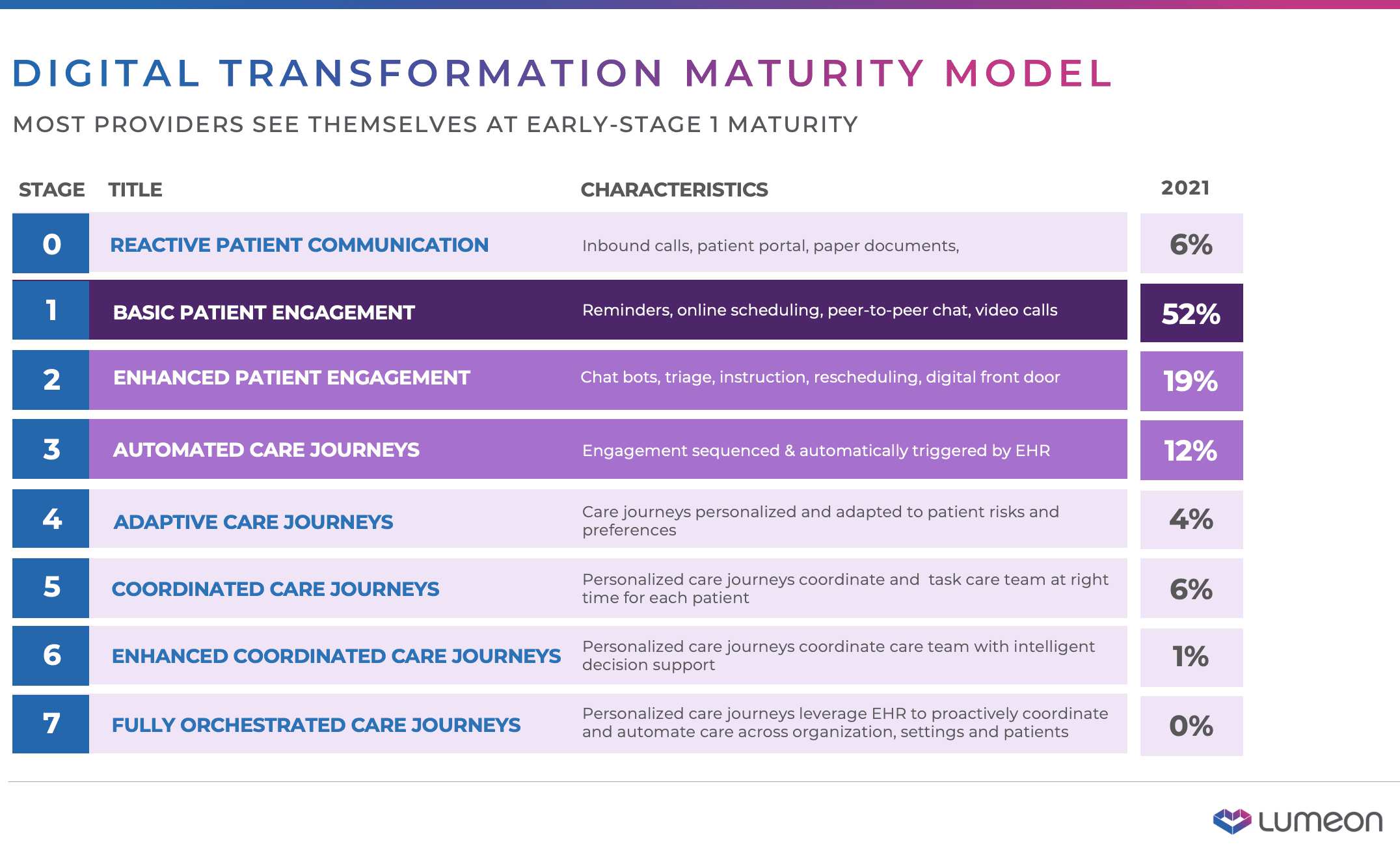
@ShahidNShah


Lumeon, a digital health firm that helps healthcare companies automate their workflows, is circulating a draft of an eight-stage “Digital Transformation Maturity Model” (Figure 1) for discussion. The model traces the use of technology especially artificial intelligence to improve patient engagement. In my view, they are going far beyond what most practices consider “engagement,” venturing into remote monitoring, peer support, and self-care. Most clinical practices are very low on the scale, often only in the first step toward active engagement.
You need a carpenter to build a house, and you need computer professionals to implement a digital strategy. Off-the-shelf programs might be available, but you still need to customize a solution and integrate it with all your other IT systems. Lumeon, for instance, offers workflow design support, not just configurable off-the-shelf software.
Good programmers and operators are hard to come by. Most clinical practices are understaffed in the areas of computer training. The market is particularly tight for people who understand sophisticated AI analytics. It’s even more difficult to find experts who are also sensitive to the health care domain and to patients’ oddities, which range from a fear of technology and an annoyance at interruptions to a resistance when given advice.
Continue reading at healthcareittoday.com
Healthcare Innovation spoke with Francois Bodhuin, technology director and information security officer at Inspira Health in New Jersey, about the simple things that organizations may be overlooking …
Connecting innovation decision makers to authoritative information, institutions, people and insights.
Medigy accurately delivers healthcare and technology information, news and insight from around the world.
Medigy surfaces the world's best crowdsourced health tech offerings with social interactions and peer reviews.
© 2025 Netspective Foundation, Inc. All Rights Reserved.
Built on Jul 11, 2025 at 12:10pm